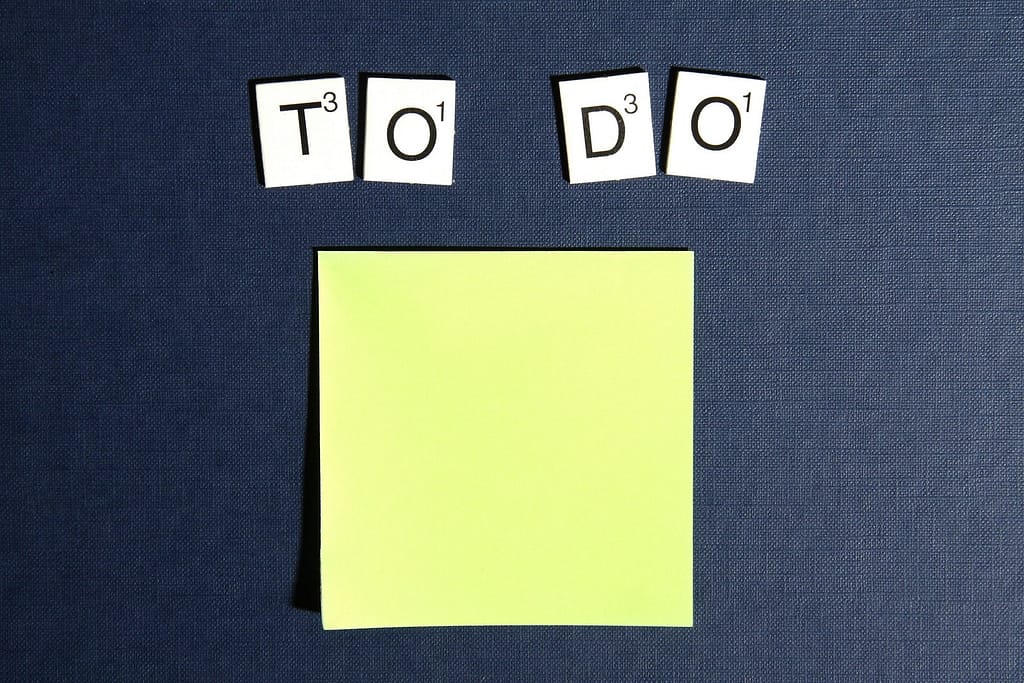Do you ever feel like you’re constantly fighting a losing battle against an ever-growing list of tasks?
Do you feel like there are never enough hours in the day, You are not alone in the dilemma. The inability to effectively manage our time is shared by many of us, making it difficult to keep on top of our workloads.
We all have goals and aspirations that we strive to achieve in the new year. Whether these are career, health, or financial goals, no matter what our end goal is, we have the power to turn it into reality.
Organizing and managing our tasks doesn’t have to be overwhelming.
By following a few simple steps, you can take control of your to-do list and get things done.
In the next blog post, we will provide a detailed walkthrough of how to prioritise your to-do list in order of importance. You can achieve greater success in completing your goals if you learn how to prioritise your tasks and set a reasonable timeline for completion.
With a clear plan of action in place, you can conquer even the most difficult challenges. So, if you’re ready to take charge of your tasks and get things done, keep reading for our step-by-step guide to organising your tasks by importance.
Create a To-Do list.
To begin, the most important thing. Create a comprehensive outline of all of the items that are currently on your list of things to do.
You do not need to be concerned about the order or the total number of items right away.
This can help you frame up how and when to wisely manage your time, which is a valuable resource.
When you have a clear plan, you can see any problems or delays and make changes as needed.
Take some time to consider the tasks you need to complete, think about what resources or skillsets you may need to do them, and then add them to your master task list.
Make sure you break each task down into smaller, more achievable goals, so that you can prioritise and stay on track. As you finish each task, be sure to check it off your list and be proud of the progress you’re making.
Reviewing and updating your action plan will help you stay on track and focus on important activities.
Group tasks by importance.
Once you’ve identified all the tasks that need to be done, it’s time to group them by importance. This is an excellent method for prioritising tasks so that you can devote your time and energy to the most important ones first.
Making a list and prioritising it, will help you build an action plan for handling your duties.
Assign a priority rating from 1 to 10 to each assignment, with 10 being the least critical. That way, you can see at a glance which activities are most important and which ones can wait.
With this method in place, you’ll be able to focus your efforts on the most critical things and get them done faster.
Prioritize tasks based on urgency.
Once you have identified the tasks you need to complete, it is important to prioritise them based on their urgency. Start by putting the most important and pressing tasks at the top of your list.
Create a monthly, weekly, and daily plan based on your to-do list. Then use your to-do list to figure out the priority of the task. These are the tasks that must be completed within a certain time frame and present the greatest risk of failure if not addressed in a timely manner.
But figuring out what needs doing now and what can wait might be difficult. You can distinguish between the urgent and the essential by using some prioritisation strategies.
The Pareto Principle, which is named after the economist Vilfredo Pareto, says that 80% of the effects come from 20% of the causes. This means that inputs and outputs don’t have the same relationship.
Using the Pareto principle, which is also called the 80/20 rule, says that a small number of inputs will lead to a large number of outputs.
Try to focus on activities that result in more than just a completed task list. Determine which quadrant a given work belongs in to determine its relative importance.
You can break this down by asking yourself the following questions:
- Is the particular task time-sensitive and crucial? If yes, you should prioritise doing it as soon as possible.
- Not an emergency, but still important: You can plan for it to happen at the best time.
- Urgent but unimportant work: You can delegate this task to someone else.
- It is neither critical nor time-sensitive: you can take these things off your plate right away.
This ensures that tasks that are more time-sensitive are addressed first, while others can wait until later. Additionally, it allows you to break tasks down into smaller, more manageable chunks, which can make them easier to accomplish.
Take action and stay on track.
Taking action means committing to completing the task at hand and not letting anything get in the way of your progress. This can be difficult when you’re juggling multiple tasks, but it’s worth it in the end. To stay on track,
Breaking down tasks into smaller chunks and setting deadlines can help you stay on track with your goals. It can be beneficial to create a timeline and set realistic goals for each task.
This way, you are able to focus on one task at a time and have a clear understanding of when it needs to be completed.
Additionally, having deadlines can keep you motivated and help you avoid procrastinating. Additionally,
it is important to factor in some time for unexpected delays. Giving yourself some room can make all the difference in achieving your goals.
Also, make sure to give yourself rewards when you finish tasks. Even small successes should be celebrated.
Understanding how to revise and adapt
Because of the dynamic nature of our lives, it is unrealistic to expect that every item on your to-do list will fall into place exactly as planned.
Because of the things you have to do every day, you will always get behind schedule or even have to give up on a project.
Remember that your To-Do list will always be something of a work in progress, in such cases, you will have to rearrange things as your priorities change.
Furthermore, if you find that you have too much on your plate, you can delegate a less essential task or seek help from coworkers who have more free time.
In conclusion, the most important thing to remember when it comes to getting things done is to prioritise tasks. To do this, break down your tasks into manageable chunks, assign each task a priority level, and create a timeline that best fits your needs.
By organising your tasks by importance, you can better manage your time and ensure that the most important tasks are completed first.
Doing this will help you stay organised, productive, and on track to achieving your goals.


